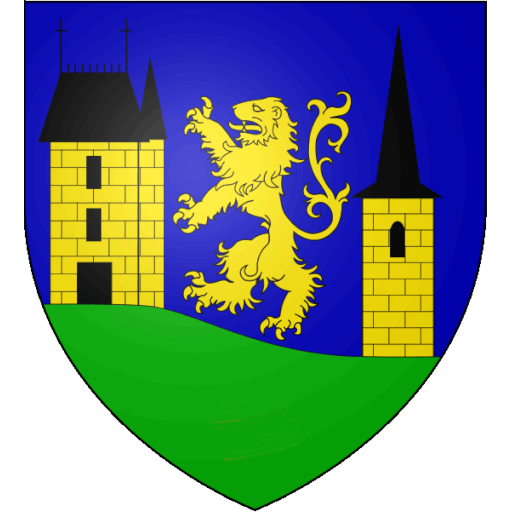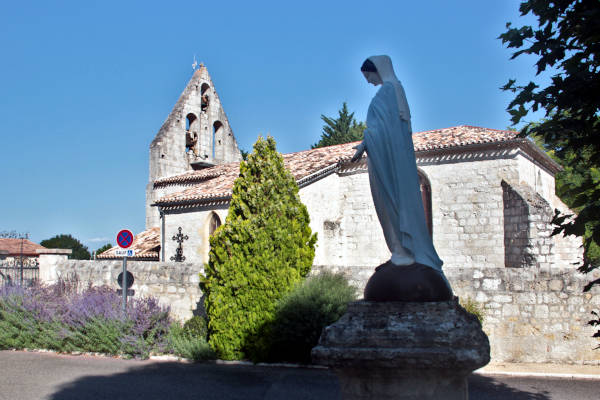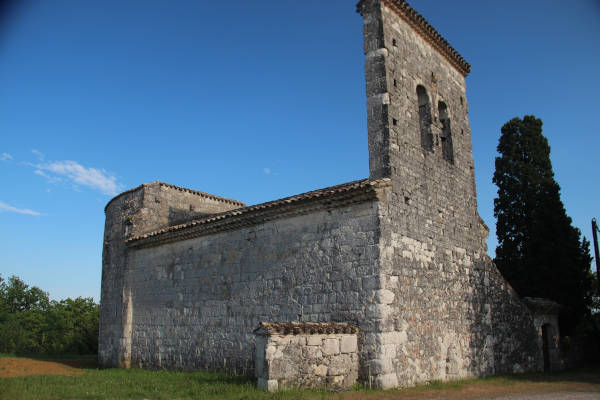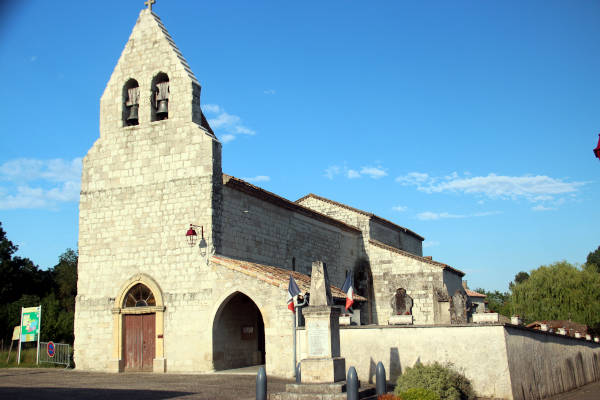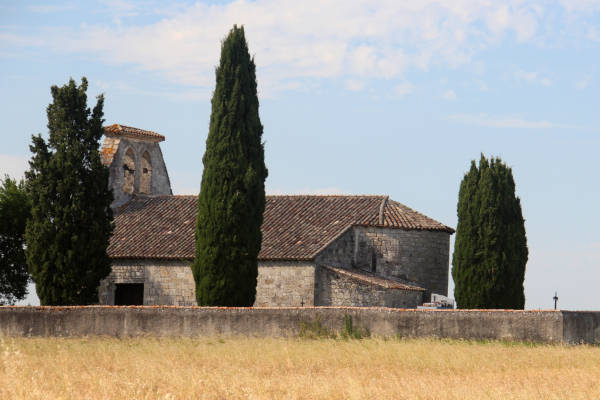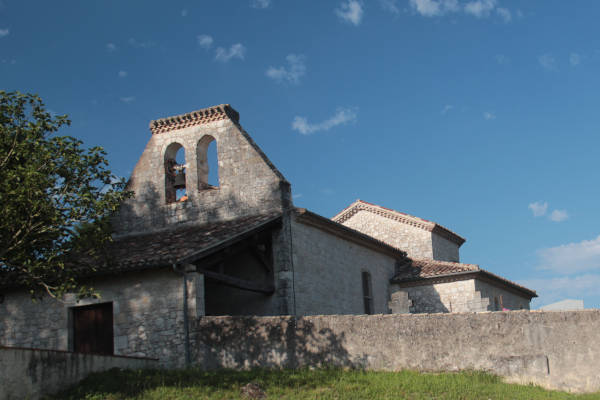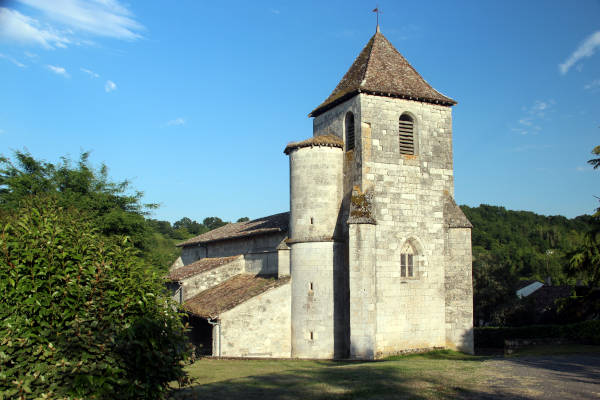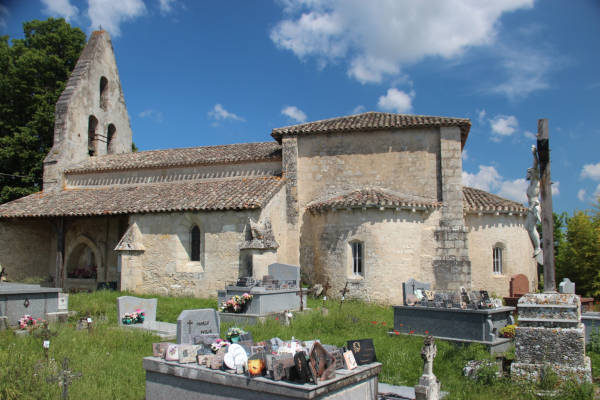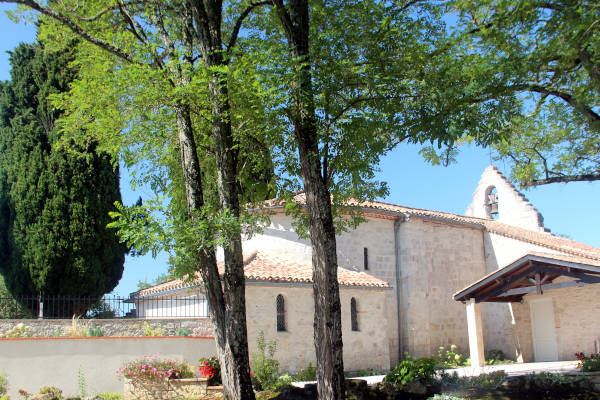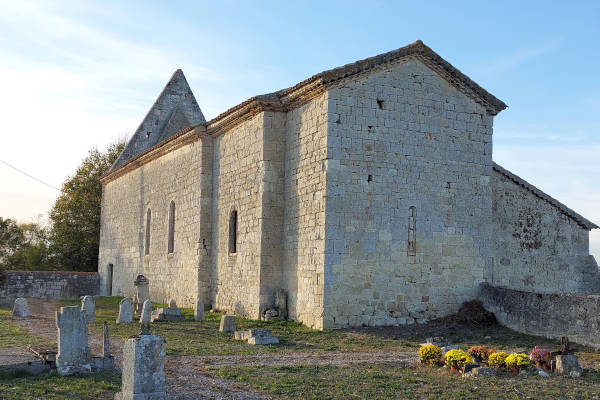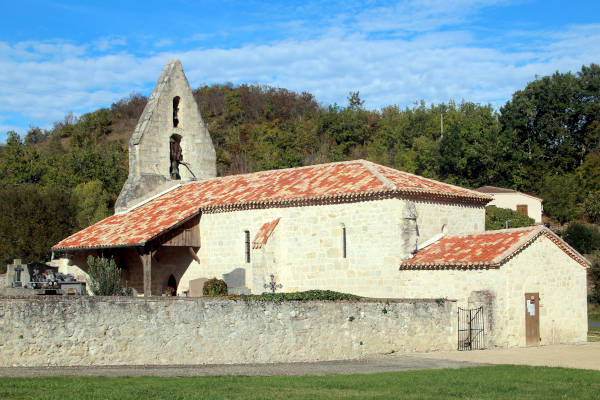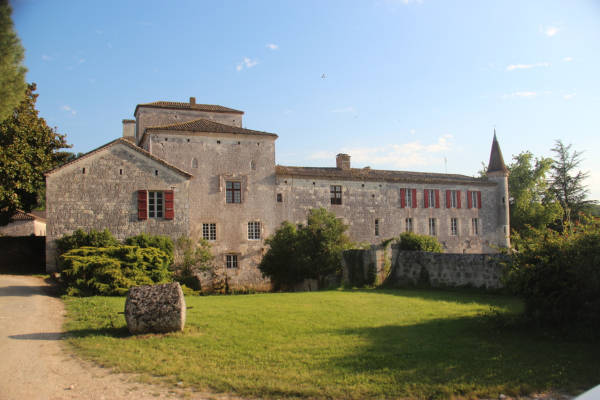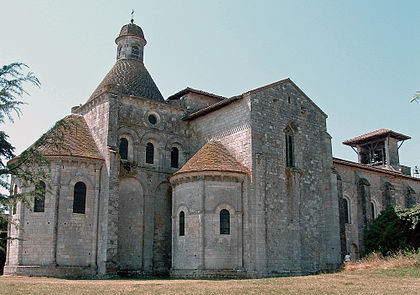The Cluniac sites
The Cluniac sites in our region are the abbeys and priories affiliated directly to the mother abbey of Cluny, or indirectly affiliated through their attachment to the abbey of Moissac. But in the context of the Abbey of Saint-Maurin, the possessions or dependencies of the abbey are also called “Cluniac sites”.
Church of La Nativité de Notre Dame
This church in Perville is one of the oldest possessions of the Abbey of Saint-Maurin. Its attachment to the abbey was confirmed in 1281
Church of Notre Dame de Cambot
The church of Notre Dame de Cambot, in the parish of Tayrac, once belonged to the abbey of Moissac. In 1236 the bishop of Agen gifted Cambot to the abbey of Saint-Maurin.
Church of Saint Amans de Tayrac
The church of Saint-Amans de Tayrac was a dependency of the Saint Maurin abbey. Over time, the church at Tayrac was transformed into a priory
Church of Saint Julien de la Serre
This charming chapel was founded by Hunaud de Gavarret, the second Cluniac abbot of Moissac. It was subsequently given to the Saint-Maurin abbey. The illustrious patronage of Moissac could explain the decoration in this otherwise modest chapel, above all its sculpted capitals.
It is one of St Maurin abbey’s oldest possessions.
Church of Saint Louis de Gandaille
This Romanesque church built of fine stones, laid in regular courses, has been recently restored. Only the nave is original.
In 1243 the abbot of Saint Maurin, Guillaume de Belpech, bought the tithe collection rights.
Church of Saint Martin d’Anglars
This is the parish church of Saint Maurin. It is situated on a level outcrop where its bell tower was able to play a defensive role. During the Hundred Years’ War, the original parish church was burnt and destroyed in 1356 by the Black Prince’s men. The church was rebuilt in 1525. This date accounts for its flamboyant ogival style.
Church of Saint Pierre del Pech
The origins of this church lie in the 11th century; abbot Laffont interpreted the Chi-Rho (see below) as the stone sign of the founder of the church, Hermann de Gavarrès.
The church originally consisted only of the sanctuary (triple chevet with a central tower), which forms the sole ancient part of this little church, according to G. Tholin. The foundations of the nave walls also date from the Middle Ages. The central tower is now lower than originally built.
Under the Ancien Régime, the parish, situated in the diocese of Cahors, came under the Benedictine abbey of Saint-Maurin.
Church of Saint Pierre es Liens of Grayssas
This church is one of the oldest possessions of the Abbey of Saint-Maurin. Its attachment to the abbey was confirmed in 1281 under the abbatiate of Gausbert Girval by a deed signed with the bishop of Cahors.
Church of Saint Sixte
The parish was a dependency of the Cauzac priory. In 1253 the rights of the Saint Maurin abbey over Saint Sixte and its annexe, Gandaille, were recognised by Guillaume, bishop of Agen.
Church of Saint Urcisse
This church gave its name to the village, which was originally called Saisimentum. It was not until later that the name “Saint Urcisse” was chosen.
Mill and church ND de Ferrussac
The origins of the fortified mill of Ferrussac go back to the first centuries of our era. Indeed, the church located on the estate (Notre Dame de Ferrussac) most probably rests on the foundations of a Gallo-Roman villa, as attested by the ac ending of the name.
This fortified mill was bought by the abbot of Saint Maurin in 1424; Jean I de Boville usurped its rights and, after arbitration in 1452, kept the estate. It remained in the de Boville family and was offered in 1606 to Bertrand I d'Audevars.
Moirax
A village that has existed since antiquity according to some archaeological evidence, Moirax was a stopover for pilgrims on their way to Santiago de Compostela during the Middle Ages. In the 11th century, in 1049, one of the first Cluniac abbeys was founded here.
It became the Cluniac priory of Sainte-Marie and its church is now dedicated to Notre-Dame de Moirax.
Credits and bibliography
- Church plans: Notes and illustrations of abbot LAFFONT, between 1904 and 1911, departmental archives of Tarn et Garonne, extracts from the article « L’architecture des églises dépendantes de l’abbaye de Saint Maurin au moyen âge », Agnès Trézéguet-Luxembourg, Revue de l’Agenais, 2017-3
- Photographic credits: G. Goudezeune unless otherwise specified
- L’architecture des églises dépendantes de l’abbaye de Saint Maurin au moyen âge, Agnès Trézéguet-Luxembourg, Revue de l’Agenais, 2017-3
- Etudes sur l’architecture religieuse de l’agenais du Xe au XVIe siècle, G. Tholin, 1874
- Supplément aux Etudes sur l’architecture religieuse de l’agenais du Xe au XVIe siècle, G. Tholin, 1883
- Colas, M & Simon, P : Territoire Roman : 12 églises insolites et méconnues en Lot, Lot-et-Garonne et Tarn-et-Garonne, les éditions fragile
- Articles du bulletin de Ferrussac, A.A. Cournot, Journ@l électronique d’Histoire des Probabilités et de la Statistique – 2005
- Saint Maurin et son abbaye, Philippe Rabois, Ed. C. Laporte, 1988
